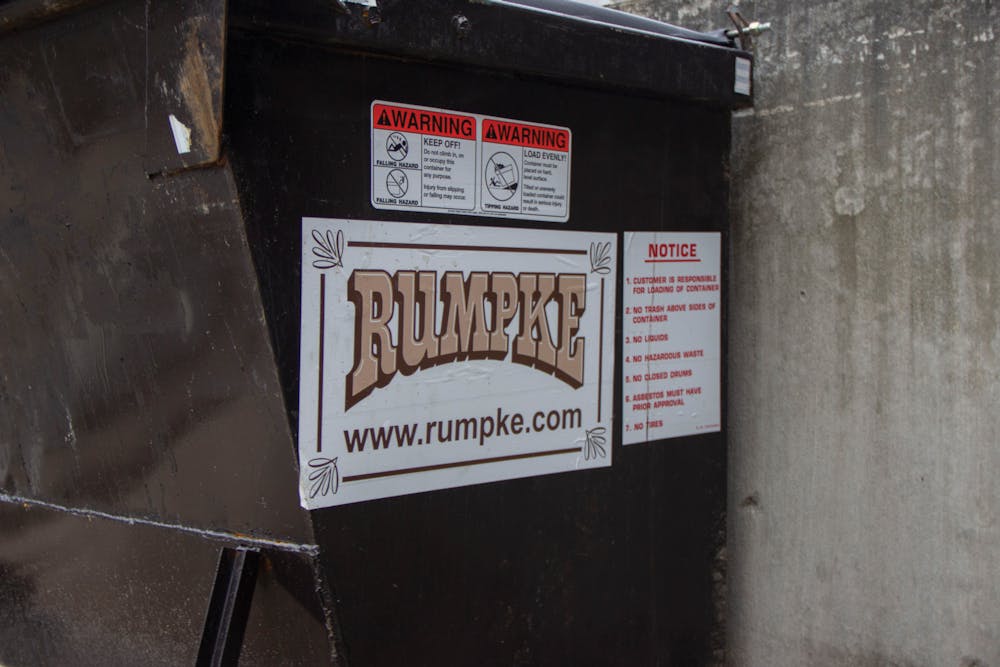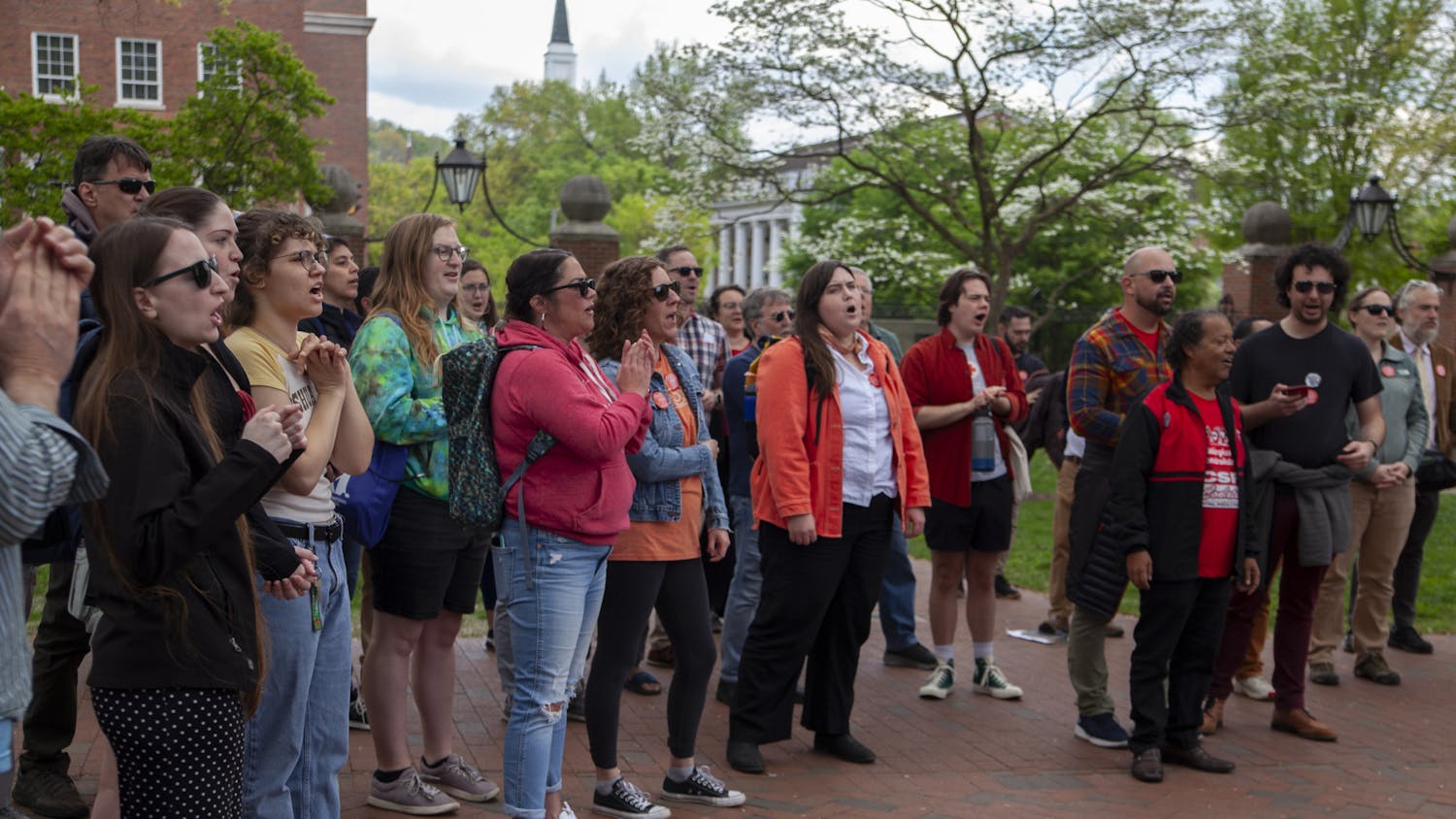Athens-Hocking Recycling Center Inc., or AHRC, faces financial difficulties following the loss of its service contract with the City of Athens.
Since establishing Ohio's first curbside recycling program in 1984, AHRC has served Athens for over 40 years. However, Rumpke Waste and Recycling took over Athen’s solid waste management operations in November, replacing AHRC due to a lower bid.
The Ohio Revised Code mandates that a city can enter a contract without accepting bids from other service providers and select the lowest bid if the service is deemed a real and present emergency to the city.
According to a previous Post report, Rumpke estimated annual costs for residential and franchise services to be around $2 million, while AHRC's projected costs were approximately $2.3 million. Selecting Rumpke saves the city about $270,000 annually, a 12% difference.
In response to its financial issues, AHRC has downsized its operations and is seeking grants. Despite these efforts, AHRC continues to face a monthly shortfall and is exploring more traditional fundraising options for nonprofits to engage in, Crissa Cummings, executive director of AHRC, said.
She said securing approximately $200,000 could sustain AHRC until January 2025.
To sustain operations, AHRC asked Athens to join the Southeast Ohio Area Resources Council of Governments, or COG, and contract with AHRC.
According to an AHRC press release from March 29, COG can contract for services with Athens for the same price Rumpke is charging and break even on expenses and income.
Partner cities, villages and solid waste districts would run a COG for waste services. The COG would take over the recycling center's operations to offer regional recycling, compost and waste collection, disposal and processing. The transition to the COG entails transferring AHRC’s assets and operations.
“(COG) allows it to be a partnership where all of the voices of the different cities and governments in the region can help determine what services are offered and hopefully continue to expand services,” Cummings said.
The Athens Hocking Solid Waste District, or SWD, and Amesville already voted to form a COG, while Nelsonville, Logan and Athens are still considering joining.
Andrew Stone, service-safety director, said at the city council meeting on April 8, that the city cannot take immediate action on the possible dissolution of Rumpke’s contract and form a COG. He said the Council takes seven weeks to act upon anything.
City Council President Sam Crowl said according to Law Director Lisa Eliason, waste contract matters fall within the responsibilities of the city administration, not within the City Council.
Crowl emphasized the importance of sustainability in waste management. He said he believes AHRC’s bid, though costlier, better aligns with Athens’ sustainability goals and community partnerships.
“We try constantly to keep prices of everything in the city down,” Crowl said. “However, in this case, when it comes to sustainability and when it comes to the amount of our waste that we put into landfills where we have a lot of environmental problems happening … I believe that all of the focus on our waste stream should be on doing the very best to mitigate those environmental dangers.”
Crowl acknowledged Rumpke’s excellent service to Athens but noted Rumpke’s sustainability efforts in Athens differ from what the city stands for.
Despite some Athens residents' concerns about Rumpke’s sustainability initiatives, Rumpke does use the natural gas from Rumpke’s Sanitary Landfill to power more than 25,000 homes in the Cincinnati region.
“I just believe that if we work together with local government and other community partners, we can have a better focus on being more sustainable with our waste management,” Crowl said. “That's what we're all about in Southeast Ohio, being sustainable and doing things ourselves and working with our partners to find the best ways forward.”
Nancy Pierce, a member of Athens ReThink Plastics, mentioned concerns about Rumpke’s chemical recycling processes. Pierce said burning plastics releases toxins into the air and the environment.
According to Environmental Health News, chemical recycling is a process that uses high heat and chemicals to break down used plastic goods into their original elements. Chemical recycling can complement traditional recycling by managing mixed and harder-to-recycle plastics.
According to a life cycle assessment study by Plastic Energy, although chemical recycling has a lower climate impact than waste-to-energy incineration, it generates nearly four times as many greenhouse gas emissions as landfilling plastic.
AHRC recycled 2,345,200 pounds of recyclable materials in 2023. According to the AHRC press release, the loss of curbside recycling will significantly increase the number of recyclable materials in the region that end up in landfills.
Crowl advocated for collaboration with COG to prioritize sustainable waste management practices.
“It does allow us to partner with other entities in our region to manage our waste for ourselves and to have programs that focus on diversion and have programs that focus on reducing greenhouse gas emissions and to have that be the central focus of our solid waste management,” Crowl said.
In last week’s Council meeting, Crowl acknowledged a significant number of people – over 40 emails and calls – urging Council members to join the resource management COG.
Loraine McCosker, a steering committee member of Save Ohio Parks, echoed the sentiment of Athens residents, emphasizing the urgent need for the city to join the COG and contract with AHRC to prevent its collapse.
“(Joining COG) would be the best way to address the solid waste needs of our region,” McCosker wrote in an email. “(Joining) should be done as soon as possible to avoid the economic collapse of Athens Hocking Recycling Center. This needs to happen.”






